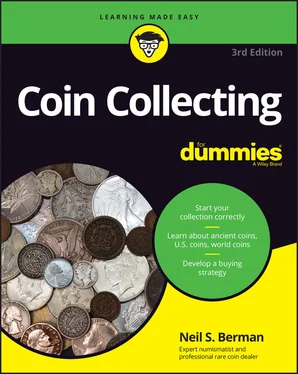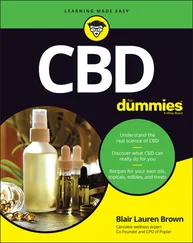Neil S. Berman - Coin Collecting For Dummies
Здесь есть возможность читать онлайн «Neil S. Berman - Coin Collecting For Dummies» — ознакомительный отрывок электронной книги совершенно бесплатно, а после прочтения отрывка купить полную версию. В некоторых случаях можно слушать аудио, скачать через торрент в формате fb2 и присутствует краткое содержание. Жанр: unrecognised, на английском языке. Описание произведения, (предисловие) а так же отзывы посетителей доступны на портале библиотеки ЛибКат.
- Название:Coin Collecting For Dummies
- Автор:
- Жанр:
- Год:неизвестен
- ISBN:нет данных
- Рейтинг книги:4 / 5. Голосов: 1
-
Избранное:Добавить в избранное
- Отзывы:
-
Ваша оценка:
- 80
- 1
- 2
- 3
- 4
- 5
Coin Collecting For Dummies: краткое содержание, описание и аннотация
Предлагаем к чтению аннотацию, описание, краткое содержание или предисловие (зависит от того, что написал сам автор книги «Coin Collecting For Dummies»). Если вы не нашли необходимую информацию о книге — напишите в комментариях, мы постараемся отыскать её.
Coin Collecting For Dummies,
numismatics
Coin Collecting For Dummies
Coin Collecting For Dummies — читать онлайн ознакомительный отрывок
Ниже представлен текст книги, разбитый по страницам. Система сохранения места последней прочитанной страницы, позволяет с удобством читать онлайн бесплатно книгу «Coin Collecting For Dummies», без необходимости каждый раз заново искать на чём Вы остановились. Поставьте закладку, и сможете в любой момент перейти на страницу, на которой закончили чтение.
Интервал:
Закладка:
The following techniques prevent embarrassing and costly damage to coins. Make sure to practice each of these techniques with every coin you handle.
Wash your hands before touching
Whatever is on your fingers will be transferred to the edge of the coin you’re handling. Coins hate sweat, doughnut glaze, potato-chip salt, hamburger grease, and just about everything else, so wash your hands before you handle those beautiful coins.
Ask before removing a coin from a holder
Different dealers use different holders, often in different ways. Many collectors keep their copper coins in felt-lined pouches inside a small paper envelope, for example. The pouches have a single opening. Some collectors place the pouch into the envelope so that the coin slides right out of the pouch when the flap of the envelope is opened. (I call this approach the straight-on method. ) Others turn the pouch so that the coin is locked in, even when the envelope is opened. Here’s where the problem lies: Some collectors turn the pouch to the left; others turn it to the right.
Watch out for the holder
Without proper care, even the simple act of removing a coin from a holder carries the risk of damage. The term flip rub refers to wear or damage caused by rubbing a coin against the surfaces of a vinyl or plastic holder. Any dirt or contamination that comes between a coin and a holder acts as an abrasive, and any movement of the coin against the holder may damage the surfaces of the coin. Therefore, the less often a coin is removed from or inserted into a holder, the better.
That’s why it’s always a good idea to ask permission to remove a coin from a holder to examine it. The dealer may prefer to remove or insert the coin or may refuse your request. Don’t be offended; the dealer may simply want to protect the coin. On the other hand, be prepared to make a purchase decision under less-than-optimal conditions.
Handle a coin by the edges
The surfaces of a coin, especially those on high-grade (new or nearly new) examples, are very sensitive and vulnerable to even the slightest damage. I mentioned earlier (in the “ Removing dirt” section) that the wood fibers in paper towels can scratch the surfaces of a coin. Fingers and thumbs can damage the surfaces of a coin just as easily. A single grain of sand stuck between the ridges of a fingerprint can scratch a coin. The salty oils from fingers often interact chemically with the metal of a coin, leaving damage that may not appear right away but could show up later and last forever. Handling a coin by the edges (see Figure 4-8) eliminates any possibility of surface contact and surface damage. Some collectors wear thin cotton gloves when handling their coins, but if your hands are clean and dry, gloves are unnecessary.
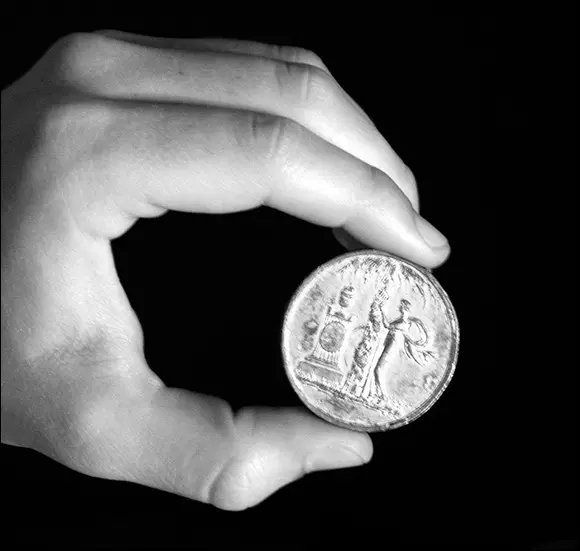
FIGURE 4-8:On the edge: The proper way to hold a coin.
Keep your mouth shut
Each time you breathe, moisture-laden air escapes from your lungs. Each time you speak, tiny droplets of spittle fly from your mouth. Well, imagine what happens to a coin that has been moisturized in this manner. Virtually all the spots you see on copper coins (see Figure 4-9), regardless of the size of the spots, were caused by moisture of some sort. Therefore, when examining an unprotected coin, breathe through your nose, and don’t speak. Most of the time, you won’t have a problem keeping this rule, because nice coins tend to leave you speechless anyway!
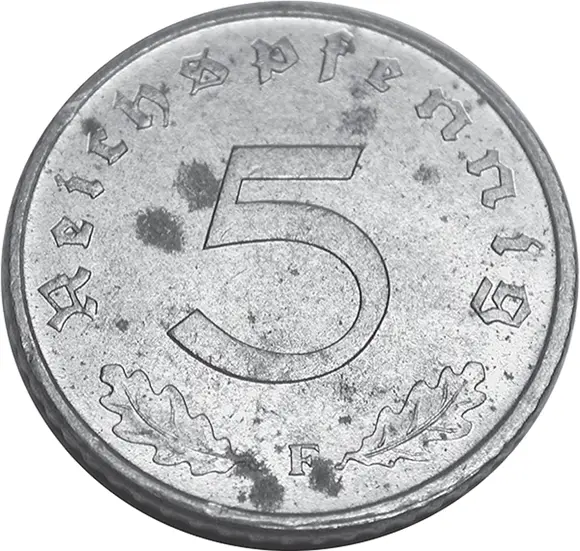
FIGURE 4-9:A single spot of moisture can hurt a coin.
Hold a coin over a soft surface
A soft felt pad or folded piece of cloth ensures that a dropped coin remains an undamaged coin (unlike the coin shown in Figure 4-10). Be prepared to drop many coins in your lifetime; every coin dealer and collector I know has done it.
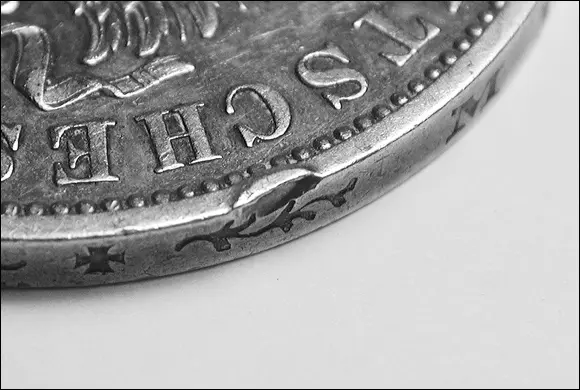
FIGURE 4-10:A rim nick can happen when you drop a coin.
Keeping Them High and Dry
Moisture is a coin’s worst enemy. Coins are made of metal, some of which is very chemically active. According to the laws of chemistry and physics, your coins will most certainly deteriorate over time unless you protect them.
A coin begins reacting with its environment as soon as it’s struck (made). Changes are subtle for the most part, but some changes may be significant. A copper coin’s color changes; it may corrode or oxidize. This damage often starts as a tiny spot that grows until it eventually eats into the coin’s surface. A single spot is bad enough, but poorly preserved coins may end up covered with spots and/or green corrosion. Naturally, collectors hate spots, corrosion, and coins with pitted surfaces (referred to as pitting ). Unless the coin is a great rarity, such damage destroys any collector value.
Silver and gold coins are just as susceptible to chemical reactions. Over time, silver will tarnish or tone, resulting in a film of color that can range from light and subtle to dark and unattractive. Gold is relatively inert, but most gold coins include a small percentage of copper, which is a very sensitive metal.
 Many of the chemical reactions that occur on the surface of a coin require, or are accelerated by, water. Simply put, water kills coins. Moisture of any kind should be avoided at all cost. If you live in an area of high humidity or ocean spray, protecting your coins becomes more difficult and important.
Many of the chemical reactions that occur on the surface of a coin require, or are accelerated by, water. Simply put, water kills coins. Moisture of any kind should be avoided at all cost. If you live in an area of high humidity or ocean spray, protecting your coins becomes more difficult and important.
Still, you can do several things to ensure that your coins remain as pristine and as beautiful as they were the day you bought them.
Keepin’ ’em dry
Most holders aren’t meant to be watertight or airtight; other holders claim to be so. We suggest erring on the side of caution by assuming that every holder allows air or water to enter. Take the same precautions with all holders, regardless of the claims made by the manufacturers.
 The changes that occur on the surface of a coin are at the chemical or molecular level, so you won’t always be able to see them. All it takes for air and moisture to seep in is a tiny hole.
The changes that occur on the surface of a coin are at the chemical or molecular level, so you won’t always be able to see them. All it takes for air and moisture to seep in is a tiny hole.
Using a desiccant
A desiccant is a drying agent available at your local hardware store. You’ve probably seen small packets of desiccant packaged with leather goods such as shoes and bags. Desiccants do a fabulous job of removing moisture from the air, and in some cases, you can reuse them by drying them in an oven on low heat.
Why are desiccants necessary in a watertight holder? When you seal a coin in a watertight container, you’re also sealing in any moisture in the atmosphere around it. A desiccant absorbs the moisture from the air, binds it, and keeps it away from your coin. In areas that are susceptible to moisture or humidity, desiccants are essential. Check your desiccant every month, and either redry it or replace it.
Читать дальшеИнтервал:
Закладка:
Похожие книги на «Coin Collecting For Dummies»
Представляем Вашему вниманию похожие книги на «Coin Collecting For Dummies» списком для выбора. Мы отобрали схожую по названию и смыслу литературу в надежде предоставить читателям больше вариантов отыскать новые, интересные, ещё непрочитанные произведения.
Обсуждение, отзывы о книге «Coin Collecting For Dummies» и просто собственные мнения читателей. Оставьте ваши комментарии, напишите, что Вы думаете о произведении, его смысле или главных героях. Укажите что конкретно понравилось, а что нет, и почему Вы так считаете.
